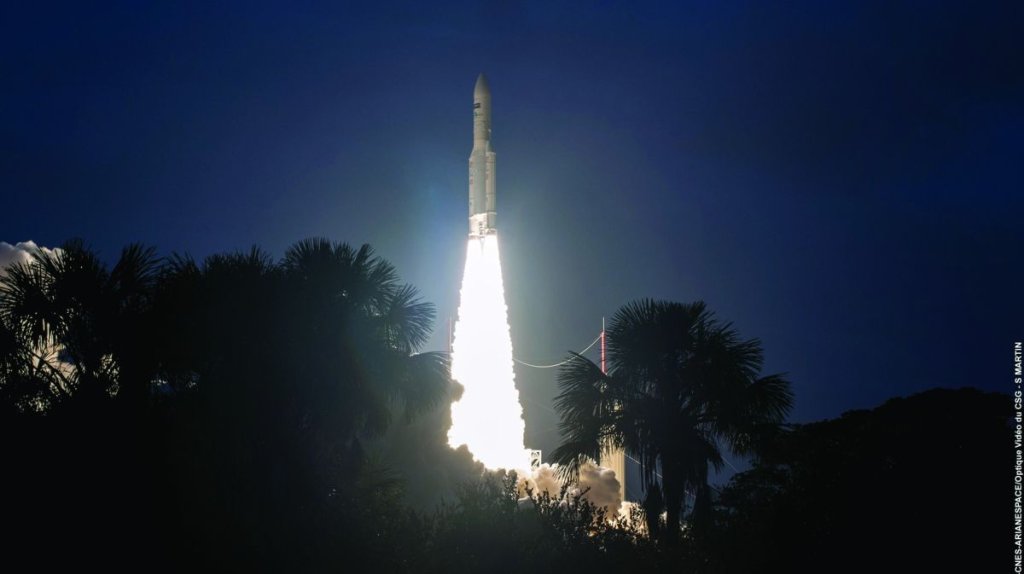We’ll have to wait a bit longer for the Ariane 5 rocket’s swan song.
The Ariane 5, a veteran European heavy lifter, was scheduled to launch for the final time on Friday (June 16) from Europe’s Spaceport in Kourou, French Guiana. But that plan just changed.
“It has come to light that there is a risk to the redundancy of a critical function on the Ariane 5. Consistent with safety requirements, Arianespace has decided to postpone the rollout of the #VA261 launch vehicle. Analyses are underway to determine a new launch date,” Arianespace, the France-based company that operates the Ariane 5, said via Twitter today (June 15). (VA261 is the name Arianespace gave to this mission.)
“The launcher and its satellites, Heinrich-Hertz-Satellit and Syracuse 4B, are in the final assembly building in stable and safe conditions,” the company added in another tweet.
In a short briefing this afternoon, Arianespace representatives said the concerns centered on three pyrotechnical transmission lines that are associated with the Ariane 5’s solid rocket boosters. Engineers will examine the issue before Arianespace announces a new target date, a milestone that’s expected in late June.
Related: Ariane 5 rocket launches biggest Eutelsat satellite ever
As one of the tweets cited above noted, there are two satellites flying on the final Ariane 5 mission. The Heinrich-Hertz-Satellit is a German spacecraft designed to research and test new communications technologies and scenarios, Arianespace wrote in a mission description.
Syracuse 4B is also a communications satellite, one that will be operated by the French military. The spacecraft “will enable the French Armed Forces to remain permanently connected during deployments,” Arianespace wrote.
“Syracuse 4B will be totally protected against the most extreme jamming methods,” the company added. “Built to defend French sovereignty, the satellite will also be able to support operations led by NATO and the EU.”
Arianespace operates the Ariane 5 for the European Space Agency (ESA). The heavy-lift rocket debuted in 1996 and now has more than 100 launches under its belt, including some very notable missions.
For example, the Ariane 5 launched ESA’s Rosetta comet-chasing mission in 2004, the agency’s JUICE Jupiter probe this past April and NASA’s James Webb Space Telescope in December 2021.
Ariane 5’s successor isn’t quite ready to take the baton. The Ariane 6 heavy lifter, which has been in development for a decade, isn’t expected to fly until late 2023 at the earliest.
Editor’s note: This story was updated at 3:05 p.m. EDT on June 15 with the update from Arianespace representatives about the cause of the Ariane 5 delay.

